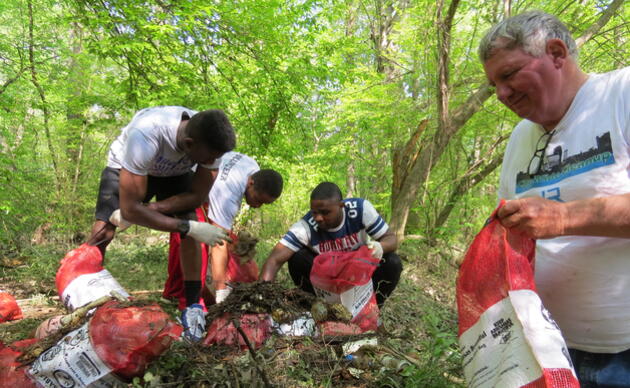JACKSON, Miss. – Today marks the public comment deadline on the U.S. Army Corps of Engineers’ (Corps) Draft Supplemental Environmental Impact Statement (EIS) for a massive drainage project in Mississippi’s South Delta commonly known as the Yazoo Pumps. The $500 million-dollar Yazoo Pumps are so environmentally destructive that in 2008 the George W. Bush Administration issued a veto through the Clean Water Act to stop the project.
“More than 55,000 citizens, scientists, and public interest groups from Mississippi and across the country have delivered a clear and decisive message to the Corps,” said Kelly McGinnis, Executive Director of the Mississippi River Network. “Mississippi Delta communities deserve real flood solutions, not the irresponsible, ineffective, and long-vetoed Pumps boondoggle.”
This broad chorus of opposition was further demonstrated in a pair of letters sent to the Corps from over 110 science professionals and more than 120 national, state and local conservation, faith-based, social justice, and recreation organizations representing millions of members and supporters.
“The Corps’ unprecedented decision to spend more time and taxpayer money on a federally vetoed project defies logic and is an appalling breach of trust,” said Andrew Whitehurst, Water Program Director for Healthy Gulf. “The Corps is trying to sidestep federal laws by refusing to consider any other alternatives except an outdated project that they themselves acknowledge will leave most local communities vulnerable.”
Although Congress authorized the Yazoo Pumps in 1941 to theoretically provide flood control, in 2007 the Corps admitted that 80 percent of the project’s benefits would be for agriculture. The Corps’ Draft Supplemental EIS reinforces this finding5 as well as its analysis during the 2019 Flood that 347,000 acres, or 68 percent, of the backwater area would remain flooded even with the Pumps in place. Corps data obtained by conservation groups in November through a public records request indicate deficiencies exist with the Corps’ modeling and suggest the Pumps would be even less effective than Corps’ claims to-date.
“Despite all the hype, the Corps’ latest study is proof positive that the Pumps are not designed to protect communities from flooding,” said Louie Miller, State Director for the Mississippi Chapter of the Sierra Club. “Even at full operation the Pumps would leave, at best, 65 percent of flooded lands underwater and it would take weeks to months to drawdown floodwaters on the remaining backwater lands.”
“The Corps is proposing the same project using the same problematic methodologies that were decisively rejected by EPA in 2008,” said Jill Mastrototaro, Policy Director for Audubon Mississippi. “Not only does the draft study still find the Pumps will harm nearly 39,000 acres of wetlands, it blatantly ignores the litany of natural resource concerns raised in the veto as well as Audubon’s recent analysis that the Yazoo backwater supports 29 million migrating birds annually. This study is sloppy, incomplete, and scientifically unsound.”
“The Corps does not evaluate a single alternative to the vetoed Yazoo Pumps, despite repeated calls to consider flood risk reduction alternatives that could deliver immediate, affordable, and effective relief,” said Olivia Dorothy, Certified Floodplain Manager and Upper Mississippi River Basin Director for American Rivers. “The Yazoo Pumps will not protect people from flooding or reduce flood insurance rates. Commonsense natural infrastructure and non-structural approaches are available now to help protect people’s lives, property and livelihoods. These more reliable measures include elevating homes, voluntary buyouts, and paying farmers to restore cropland back to wetlands. The Corps should prioritize these smart solutions for the Yazoo Backwater Area.”
Federally-funded programs that can provide flood relief alternatives to the Yazoo Pumps include the Federal Emergency Management Agency’s National Flood Insurance and Flood Mitigation Assistance Grant Programs, U.S. Department of Housing and Urban Development’s post-disaster programs, and U.S. Department of Agriculture’s voluntary conservation programs.
Click here for more information.
CONTACT:American Rivers - Olivia Dorothy, (217) 390-3658, odorothy@americanrivers.org
Audubon Mississippi - Jill Mastrototaro, (504) 481-3659, jill.mastrototaro@audubon.org
Healthy Gulf - Andrew Whitehurst, (601) 954-7236, andrew@healthygulf.org
Mississippi River Network - Kelly McGinnis, (708) 305-3524, kmcginnis@1mississippi.org
Mississippi Sierra Club - Louie Miller, (601) 624-3503, louie.miller@sierraclub.org



